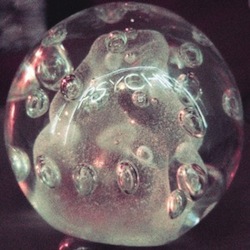Darkside : Psychic

Dance music and blues have long made for strange companions, albeit companions who are inextricably tied to one another. Electronic music — EDM, big beat, house, trip-hop, whatever — is built just as much on blues scales as it is clever beat flips or well-placed samples. It’s in the basslines, in the groove, in the soul of it all. It’s there, right down where the grit and the grime gets under the needle or into the crevices where the buttons lie. Blues is dance music, and vice versa — even IDM can’t escape the influence of blues, as artists like Aphex Twin or Autechre have taken careful steps to avoid stepping under its shadow. Absence, in this case, speaks just as loud as presence.
This connection isn’t foreign or even new to the producing elite. Hell, Moby made an entire album around this concept, the singles of which are still playing on a P.A. system near you. Yet recent efforts to pay interest on electronic music’s debt to blues have largely stumbled over their own ineptness in actually capturing any of its soul. Chartmongers Alex Clare and Imagine Dragons have found a comfortable hybrid of bro-step and Black Keys, and AWOLNATION have contorted blues-based progressions into cyberpunk sea chanteys, but they all sound like hollow reverberations inside a newly opened pentatonic erector set.
Such is not the case with Darkside, the collaboration between Chilean-born producer Nicolas Jaar and guitarist Dave Harrington. The duo doesn’t play blues — not exactly anyhow, and I doubt they’d claim they did. Theirs is a primarily electronic medium, building off of the eccentric downtempo house Jaar crafted on 2011’s Space Is Only Noise, yet rather than using avant garde jazz as a textural conceit, their debut, Psychic, peppers its hypnotic dance excursions with a heavy network of blues and funk. There’s nothing traditional about it — this is progressive electronic music, after all — but there’s an undeniable soul to it that makes it much stronger than the sum of its influences.
At their most explicitly bluesy, Darkside have a raw, organic feel that sometimes betrays the electronic nature of their music. “Heart” opens with foot-stomps and hand-claps that immediately set the track in motion on a gritty path, even as Jaar’s ethereal atmospherics billow about. Yet the blend of Jaar’s synth stabs and Harrington’s muscular guitar licks lends “Heart” all the more emotional, corporeal gravity. Similarly, but done with all the more impressive dazzle, “Paper Trails” maintains a starkness about it, a simple bassline pulsating beneath Jaar’s low croon and Harrington riffing at his Stevie Ray Vaughan or Mark Knopfler best.
When Psychic hits a deeper, funkier groove, however, it’s even better. And it does that pretty early, Jaar and Harrington opening the album with the incredible, 11-minute epic “Golden Arrow.” It opens with a low rumble, perhaps a gong, and then an amorphous mist that perpetuates for nearly two minutes. Once the first synth tone hits like a bolt through the fog, a rhythm begins to form, and by 4:45 into its depths, we’ve got a beat. The groove gets fatter, the guitar licks scratch out a skinny funk, and Jaar lets out his otherworldly, echoing falsetto. It’s a bold move putting a track this good and this massive as the first on the album, but it also takes a while to pick up momentum. Epic as it is, it feels right having it here, before the duo dives into the physical, almost Prince-like cosmic funk of “The Only Shrine I’ve Seen,” or the sinister quiet storm of gorgeous closing track “Metatron.” The argument against putting the best song first is a familiar one — and generally an apt one — but the sequencing on Psychic is impeccable.
Though there’s a heaping amount of soul, funk and, indeed, blues injected throughout the alien grooves on Psychic, they all appear in mutant form, rarely anywhere close to pure. But you can still feel them there; even when Jaar’s vocals are strained and contorted, and when Harrington’s licks sound like they’re floating in space. Blues — in twisted and tweaked forms, strange shades and sometimes unrecognizable shapes — is in Darkside’s veins.
Similar Albums:
 Studio – Yearbook 1
Studio – Yearbook 1
 Chromatics – Night Drive
Chromatics – Night Drive
 Forest Swords – Engravings
Forest Swords – Engravings
Jeff Terich is the founder and editor of Treble. He's been writing about music for 20 years and has been published at American Songwriter, Bandcamp Daily, Reverb, Spin, Stereogum, uDiscoverMusic, VinylMePlease and some others that he's forgetting right now. He's still not tired of it.

